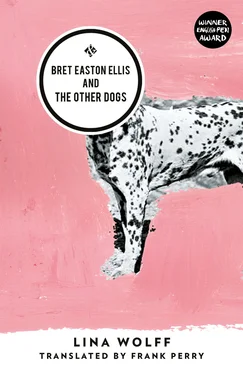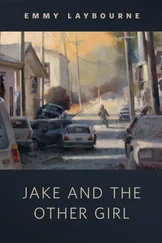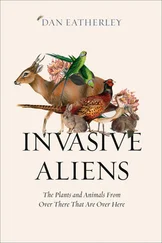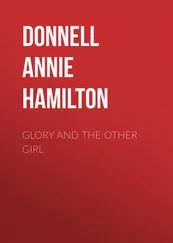So no Dad, not that I’ve lacked for stand-ins. Only my fathers have all been mayfly dads, the kind that are here one day and gone after three days at most. Some left traces behind, a khaki-coloured toothbrush in the bathroom, an inhaler, a book on a bedside table, and sometimes those traces would give rise to hopes that they might come back, come in the door to the flat and suddenly be struck by the idea that this really was a bit like returning home, that everything was already here — a home, a wife and a child — all they had to do was enter and start living. I wrote about all of them in my diary, and because their names eventually started to blur (Valerio, Enrique, Álvaro, José María) I began calling them ‘the Jogging Pants Man’, ‘the Chuckling Man’ and ‘the Tartare Man’ instead, and then their images would immediately reappear before me.
‘The Tartare Man’ once made himself a steak tartare on our terrace. I had no idea what steak tartare actually was until he explained with a lofty expression on his face that this was what sophisticated bohemians in Paris ate. The sophisticated inhabitants of Paris were people whose taste buds had not yet been destroyed by charred meat and fried onions. He took the ingredients out of the bag and put the tartare together in front of us. The tartare consisted of cutting up a packet of raw mince and mixing it right there and then with egg yolk, salt and pepper. Have a taste — it’s delicious, he said and offered the greasy plastic tray to Mum. She turned her head away and pretended not to look, but I did. His fingers closed hungrily around the mess and you could see the pleasure in his face as he pushed the morsel into his mouth. Uhhnn, he said. Then he swallowed and it was impossible not to think of a snake as his Adam’s apple pushed the mouthful down his throat. Please don’t let her let him move in, I thought, and she didn’t.
For his part ‘the Canary Man’ made his mark with a rather distinctive present. Before he arrived Mum explained that this man was wasn’t ugly, or attractive, but attractively ugly. He turned up one Friday evening, appearing in the gloom of our hall with a bottle he presented to Mum. Mum accepted the gift and put it on the linen cupboard.
‘Thank you,’ she said.
I knew what Mum did with the presents she was given by her male friends. She stuffed them in a box she kept under the bed, and when that was full, she shoved them in the wardrobe. Sometimes she would get bottles of wine and sometimes a bouquet of flowers. She also received chocolates, underwear and spirits and even though she always thanked them politely, it all ended up in the wardrobe in the bedroom. Once the man had gone, she would say that that wardrobe could serve as a storehouse in case of war or hard times. I used to think that a storehouse for hard times ought to contain completely different things like rice, beans and raincoats. Not Bowmore, corsets and Valrhona. But the Canary Man was to surprise us, because once he had handed over the wine bottle he said he had brought something else as well. He took a step backwards, and reached for something on the landing.
‘Here,’ he said. ‘This is for you.’
He handed the cage proudly to Mum. An orange canary perched on a stick inside, its head aslant, looking at us with its black pinhead eyes. For a moment Mum just stood there staring at the bird as though she had been turned to stone. Then she laughed, said thank you and carried the cage, which had a little hook on the top, through the hall and put it on the cupboard beside the toilet door. I followed behind, looking at it. The bird looked back at me.
‘Do you like it?’ the man said when he had taken off his jacket and Mum had gone into the kitchen to get something to drink.
I shook my head.
‘I don’t like birds.’
‘So what do you like?’ the man asked.
‘Ice cream,’ I replied.
He laughed.
‘Then I’ll have to remember that for next time. Ice cream. I really won’t forget. Ice cream.’
The canary stayed silent throughout the evening. It perched timidly on its stick, pressed against the bars at the far end of the cage and its eyes remained jet black. Finally it fell asleep and then it looked dead, although its claws still managed to clutch its stick.
‘That’s the way it sleeps,’ said Mum’s friend.
‘What if it falls off?’ I asked.
‘They never fall off.’
And the canary didn’t fall off its perch. The next morning it woke us with its chirping, which penetrated into every corner of the flat. It must have been no later than five o’clock when it started, and once the clock struck seven, Mum got up and put a cloth over the cage, but the bird continued to chirp. At nine Mum and the Canary Man came out of the bedroom and went into the kitchen to make breakfast. They ate in silence and the Canary Man was now more ugly than attractive. I drew a canary on a notepad that lay on the table and that Mum used for writing down what she needed to buy at the shops. The bird was orange and flying towards a blue sky. Mum and the Canary Man both glanced furtively at the drawing although no one said anything. Finally Mum finished her coffee, put the cup on the draining board and went into the hall. She took the cage by the hook and moved into the bedroom. The Canary Man and I followed her. The Canary Man had a croissant in his hand and I could hear him chewing while Mum opened the window. When she lifted the cage to the window ledge and opened its door, a little clucking sound seemed to come from the man’s throat. He stopped chewing at that point. The canary moved to the opening of the cage and then jumped onto the window. It stayed there for a good long while, as though considering something. It gave Mum, the Canary Man and me a sidelong look. Finally it launched itself into the air and flew out the window. It dropped rapidly, frantically fluttering its wings; it sank a bit more and then seemed to give up and tumbled through the air like a brightly coloured handkerchief. Finally it hit the ground and just lay there. I could feel the Canary Man’s breath against my neck as we stood staring down at the street. It smelled of croissant, but he had completely stopped chewing.
‘What a feeble birdie that was,’ said Mum and closed the window.
‘You killed it,’ said the man.
‘It fell,’ said Mum.
Nothing more was said about the bird. In fact nothing more was said at all. Mum clattered the cups in the sink instead and then onto the drainer. By eleven the newly showered Canary Man was in the hall and saying his thanks. He said though he had to leave now, maybe they would be in touch again at some point in the future.
‘Of course,’ said Mum.
The Canary Man left and never came back.
After that Mum said:
‘I’m ready for love, just not for lovers and husbands. I can’t cope with them.’
As for me, I had nothing against men, whether they were husbands or lovers. I had also been in love, only once it’s true, but as they say it’s not the number of men who have filed past in your life that counts but the intensity of feelings you experience. Benicio Mercader was a nice man, not the kind who ate raw mince with his hands or turned up carrying a cage. Benicio Mercader was carefree, good-humoured, sharp as a razor blade and virile as a bull (those are not my words in that last bit but a paraphrase made afterwards by Muriel Ruiz). He came strolling along the promenade one day in Perpignan, this was a long time ago now, ten years, probably more. We were staying at the time with Mum’s friend Geraldine who had her own parasol on the beach that summer. As she used to say, it was a ‘prime-place parasol’ that any foreign tourist would have to pay ten euros a day for, but which Geraldine as Geraldine had got for free. Mum had no trouble accepting Geraldine’s diva-like airs, and just laughed and said that if Geraldine was given a parasol in the front row totally for free there could only be one reason — Geraldine’s appearance. Any parasol-vendor with even an ounce of business sense was bound to realise that if you put someone like Geraldine in the front row, all the rows behind would fill up no matter how much you charged. And that was true. Because there are bodies and there are bodies, as Geraldine used to say. Some were like shamefaced shacks that buckled under other people’s eyes as they moved along the shoreline. Those same people, in Geraldine’s view, pretended to themselves that the physical was not important and that what counted was the soul. Then there were those who were born to be paradise on two legs. When they walked by it was as if everything stopped. Those who said it was the soul that mattered gazed in astonishment at these walking paradises, wondering how they could ever have been created, how their proportions could come together in such exquisite and therefore also such appalling harmony. The only answer the shacks could come up with was that if they were that beautiful, they would have to be incredibly defective in some other way.
Читать дальше












